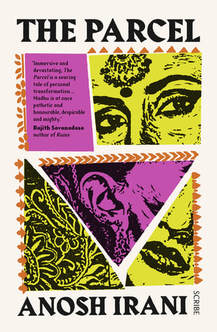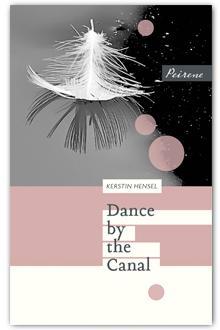The Parcel by Anosh Irani
Our guide in this sordid landscape is Madhu, a forty-year-old hijra well past her prime. Revered, feared and ridiculed in equal measure, India’s third sex – castrated men who identify, yet somehow fail to pass, as women – has been part of the culture for centuries. Fleeing her disapproving father as an adolescent boy to become one of the most celebrated prostitutes in central Bombay, Madhu is now reduced to begging. Tasked with preparing a new parcel for opening – essentially desensitising her sufficiently to endure penetration without screaming so much the client will ask for his money back – Madhu is proud to have devised a method of ensuring compliance without the child completely losing her mind. But it’s still a form of torture, taking an emotional toll on both victim and perpetrator, reminding her of her own childhood struggles. Alongside the story of this perverted coupling, is (an apparently meticulously-researched) insight into hijra culture and a minor plot concerning the attempts of unscrupulous property developers to expel the hijras and sex workers from the prime real estate they occupy in central Bombay.
Having been fascinated by hijras when I visited India many years ago, I’ve been hoping for a more nuanced fictional encounter than I found in The Land Where I Flee. Proud and self-pitying, courageous and cowardly, cruel and kind, Madhu ticks that box. Only a few years younger than Diana in my debut novel, Sugar and Snails, although a hundred times more unlucky in life, I was interested to find Madhu similarly reviewing the past, wondering whether such a radical transformation would have been necessary had her family be more accepting of the child she was.
A painful read (albeit rewarded with a snip of redemption at the end), I wish the world it depicts were a fantasy, but The Parcel makes a strong case for fiction as truth. Published by Scribe, who provided my review copy, it deserves a wide readership. If, as has been claimed, Uncle Tom’s Cabin contributed to the demise of African slavery, perhaps The Parcel can do likewise for the trafficking of children for sex.
Dance by the Canal, by Kerstin Hensel (translated by Jen Calleja)
The only child of a top vascular surgeon and a popular society hostess, Gabriela’s early years are characterised by loneliness, until an intriguing woman with a red wig comes to teach the violin. Unfortunately, Gabriela has no talent for music, although her obsession with her teacher endures for the rest of her life. Finally able to mix with other children on starting school, the contradictions of the State are confusing: with the letter I for Intelligentsia next to her name in the class register, Gabriela is expected to shine, yet her father’s prestige is gradually diminishing, and he turns to alcohol with disastrous results. Meanwhile, Gabriela has befriended the most unsuitable girl in the class from her parents’ perspective, a girl from a family that lives in filth, and entices her to dance naked by the canal, the water coloured by whichever of the factories has unloaded its effluent that day.
Gabriela’s story is defined by a series of disappearances, unexplained to her but likely to result from the individual’s unpopularity with the Communist regime, such that, in the end, she can’t be sure she hasn’t been disappeared herself. Despite the dark subject matter, Dance by the Canal is light in tone, leaving the reader to wonder how much of Gabriela’s story is an accurate reflection of events. A short book to read in an evening, I received my copy from the publishers, Peirene Press.
























 RSS Feed
RSS Feed





















